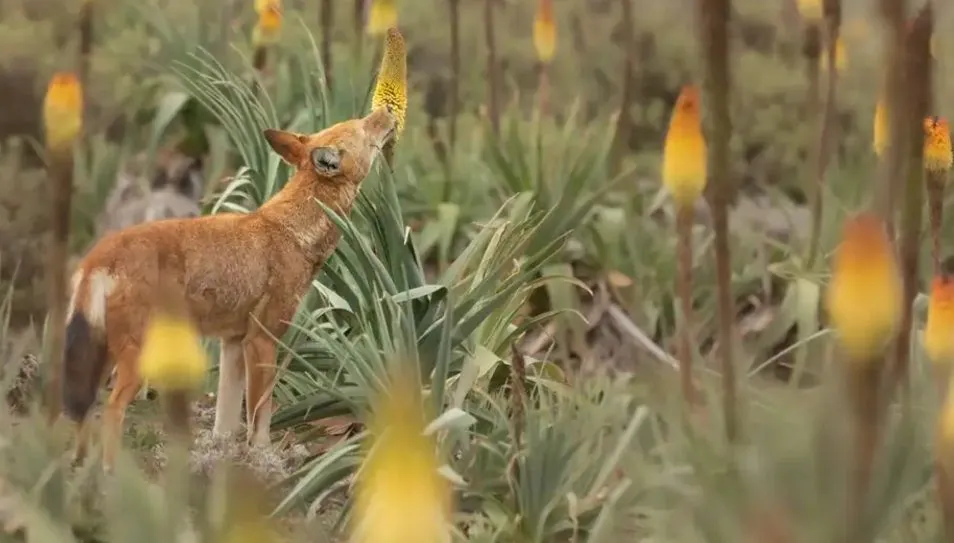Ethiopian wolves: nectar-eating predators and pollinators of plants
Kyiv • UNN
Scientists have discovered that Ethiopian wolves regularly feed on the nectar of local flowers. While feeding, their snouts are covered with pollen, which allows them to act as pollinators.

Endangered Ethiopian wolves feed on pollen from plants and may be the first predators of pollinators, UNN reports, citing New Scientist .
Ethiopian wolves feed on the sweet nectar of local flowers. In this way, pollen remains on the animals' faces and they can act as pollinators.
Indian billionaire left an inheritance to a dog, a butler and a cook28.10.24, 11:19 • 111766 views
The Ethiopian wolf is the rarest wild canid species in the world and the most threatened carnivore in Africa. Wild Ethiopian wolves consume the nectar of the flowers of the Ethiopian hot poker (Kniphofia foliosa), which is traditionally used by locals in the mountains as a sweetener for coffee and bread.
These wolves are believed to be the first large carnivorous species to regularly feed on nectar.
For large carnivores such as wolves, nectar feeding is very unusual due to the lack of, for example, a long tongue or specific snout structure, and because most flowers are too fragile or produce too little nectar to be of interest to large animals
Researchers at Oxford University have also observed that some wolves approach 30 flowers at a time. When they lick the nectar, their snouts become covered with pollen, which they can potentially transfer from flower to flower while eating.

“The behavior is interesting because it shows that nectar feeding and pollination by flightless mammals may be more widespread than currently recognized, and that the ecological importance of these lesser-known pollinators may be more important than we think,” says Sandra Lai.
Recall
National Geographic has presented its annual selection of the best photos of the year from over 2.3 million images. Among the 20 selected photos are unique shots of penguins and a mass wedding during an eclipse.